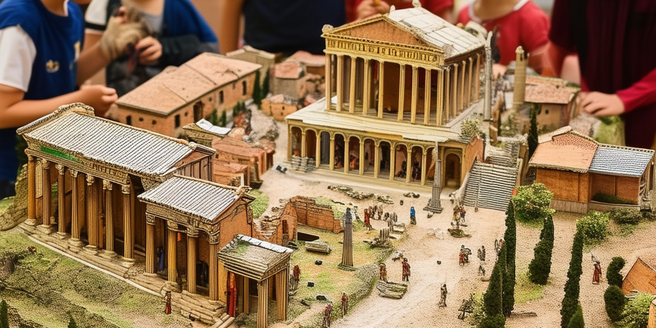
Ancient Civilizations: Engaging Young Minds
Exploring ancient civilizations offers a gateway to understanding our shared history. Introducing young minds to the intriguing tales of the Egyptians, Greeks, and Mayans allows them to connect with the past meaningfully. Stories of pharaohs, architects of the pyramids, fearless Spartan warriors, and the intricate Mayan calendar engage children’s imaginations. Utilizing visual aids, such as maps and artifacts, helps to create a vivid picture of these long-gone cultures. Interactive activities, like constructing a papyrus scroll or building a model of a Greek column, encourage hands-on learning, making history tangible. By fostering a connection between past and present, children learn vital lessons about human innovation, perseverance, and culture. This understanding helps them appreciate diversity and respect the interconnectedness of global history.
The Middle Ages: Castles, Knights, and Daily Life
The allure of the Middle Ages captivates children with stories of noble knights, grand castles, and bustling medieval towns. Bringing this period to life through tales of chivalry and epic quests sparks excitement. Exploring life in a castle, from feasting in the great hall to defending the fortress, helps children understand the complexities of medieval society. Introducing key elements, such as heraldry, daily crafts, and the feudal system, provides a comprehensive view of the era. Interactive activities like designing a family crest or staging a mock joust allow children to experience history firsthand. These activities promote both curiosity and creativity, as children piece together the middle ages’ intricate social, political, and economic structures, forming a bridge between those distant times and their impact on the world.
The Renaissance: Art, Science, and Exploration
The Renaissance marks a period of profound cultural rebirth, offering children a fascinating window into the past. This era awakened a newfound appreciation for art and science, as exemplified by great figures like Leonardo da Vinci and Galileo Galilei. By studying the works of artists and scientists, students explore humanity’s boundless creativity and quest for knowledge. Engaging in activities such as recreating a Leonardo painting or conducting a simple experiment inspired by Galileo ignites curiosity. The spirit of exploration is also recalled through tales of Marco Polo and Christopher Columbus, who expanded the known world. Such stories encourage young learners to embrace their inner discoverers. Through hands-on projects and storytelling, children learn to appreciate the innovative spirit of the Renaissance and its lasting influence on modern art, science, and culture.
Revolution and Change: Understanding Modern History
Teaching children about modern history involves exploring the revolutions that have shaped our current society. Discussing key events like the American and French Revolutions provides insight into how ideas of liberty and equality emerged. By examining influential figures such as George Washington and Napoleon Bonaparte, children discover how leaders inspire change. Using primary sources like Declaration of Independence excerpts and visual timelines aids in illustrating this period’s impact. Interactive reenactments of key historical moments and debates help children grasp the struggles and breakthroughs that forged modern democracy and citizenship. This approach nurtures critical thinking and promotes an understanding of the ongoing pursuit for justice and rights. By connecting past crusades with present-day issues, pupils gain an understanding of historical continuity and motivation to contribute positively to the future.
Interactive History: Games and Activities for Kids
Bringing history to life through interactive games and activities can significantly enhance children’s learning experiences. Engaging with history beyond textbooks encourages a deeper understanding and retention of historical facts and narratives. This can be achieved through role-playing activities, where children assume the roles of historical figures or ordinary citizens from different eras, fully immersing themselves in that period. Through board games and scavenger hunts themed around historical events, children can explore timelines and important events in a fun, engaging way. Digital simulations and online games provide another layer of interaction, allowing children to experience historical scenarios virtually. These methods ignite enthusiasm for history by making learning captivating and interactive. Engaging children with history in playful ways stimulates their curiosity and enthusiasm, turning every lesson into a memorable adventure.
